An apostrophe is a punctuation mark (‘) used to indicate the possession or the omission of letters or numbers.
Definition of Apostrophe
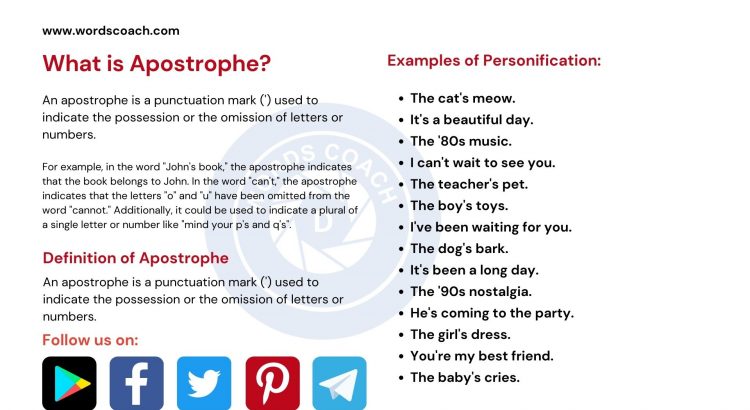
An apostrophe is a punctuation mark (‘) used to indicate the possession or the omission of letters or numbers.
Definition of Apostrophe
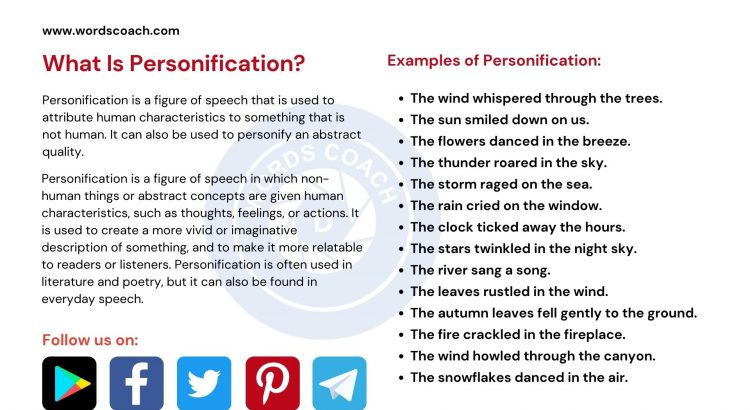
Personification is a figure of speech that is used to attribute human characteristics to something that is not human. It can also be used to personify an abstract quality.
For example, “the wind whispered through the trees” is an example of personification because the wind cannot literally whisper, but the comparison is used to create a more descriptive and imaginative image.
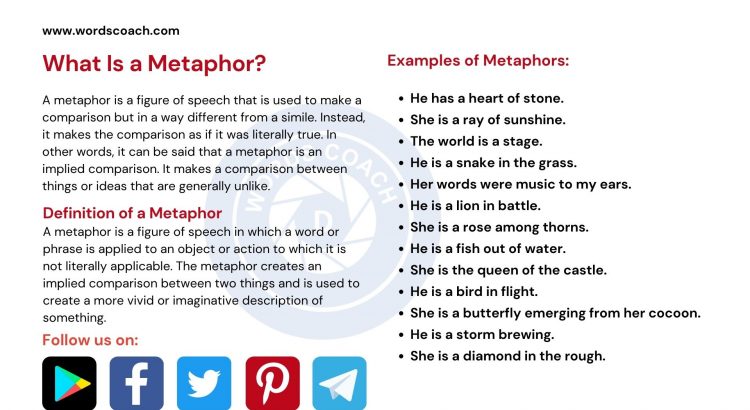
A metaphor is a figure of speech that is used to make a comparison but in a way different from a simile. Instead, it makes the comparison as if it was literally true. In other words, it can be said that a metaphor is an implied comparison. It makes a comparison between things or ideas that are generally unlike.
Definition of a Metaphor
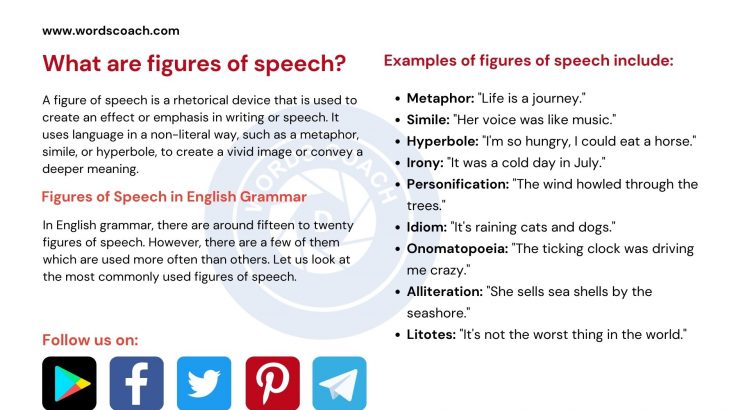
A figure of speech is a rhetorical device that is used to create an effect or emphasis in writing or speech. It uses language in a non-literal way, such as a metaphor, simile, or hyperbole, to create a vivid image or convey a deeper meaning.
Definition of a Figure of Speech
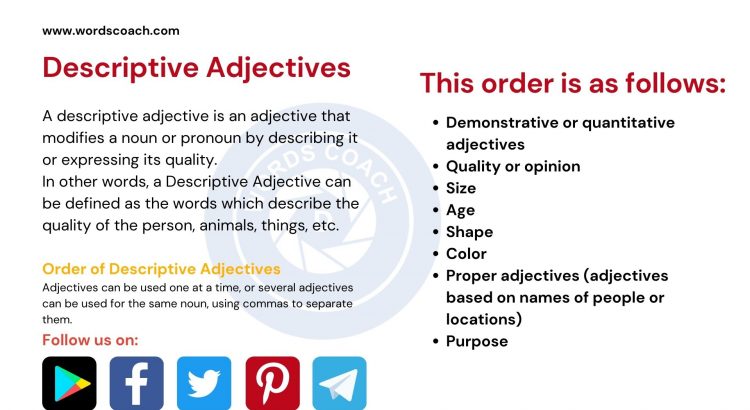
A descriptive adjective is an adjective that modifies a noun or pronoun by describing it or expressing its quality.
Types of Descriptive Adjectives with Rules
– Positive Adjective
– Comparative Adjective
– Superlative Adjective:
List of Descriptive Adjectives
Expressing Views and Opinions in English
Common phrases
Add strength
Formal phrases
Asking for opinions
Agreeing & disagreeing
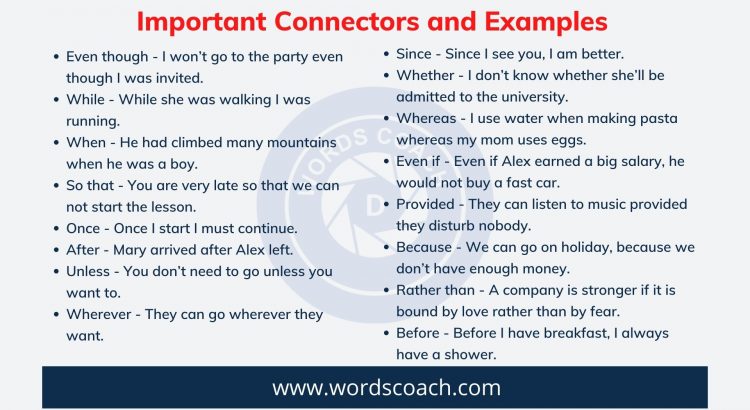
A connector is a device that joins two pieces of equipment, wire, or piping together.
Important Connectors and Examples
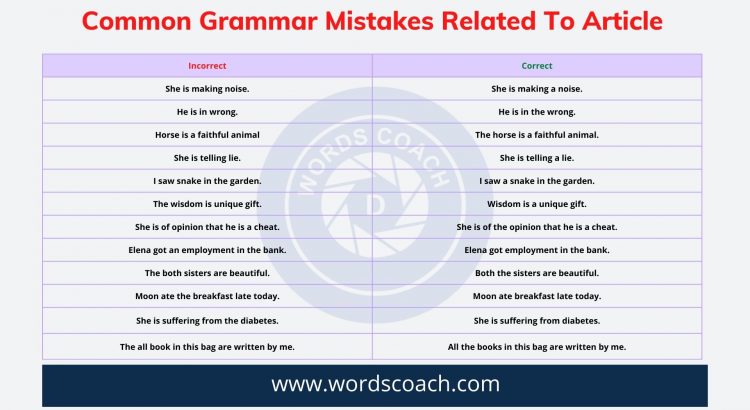
There are three articles (A, An, The) in English grammar. Articles are used before a noun, an adjective, and an adverb.
Common Grammar Mistakes Related To Article
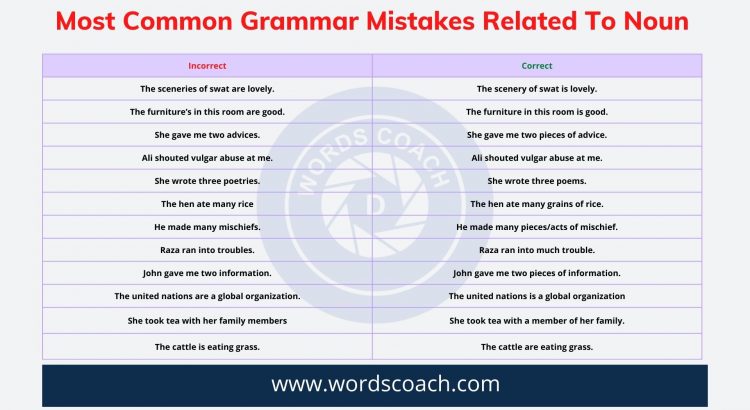
A noun is a word used as the name of a person, place or thing. Noun is described as words that refer to a person, place, thing, event, substance, quality, quantity, etc. The noun is a part of speech typically denoting a person, place, thing, animal or idea.
Most Common Grammar Mistakes Related To Noun.
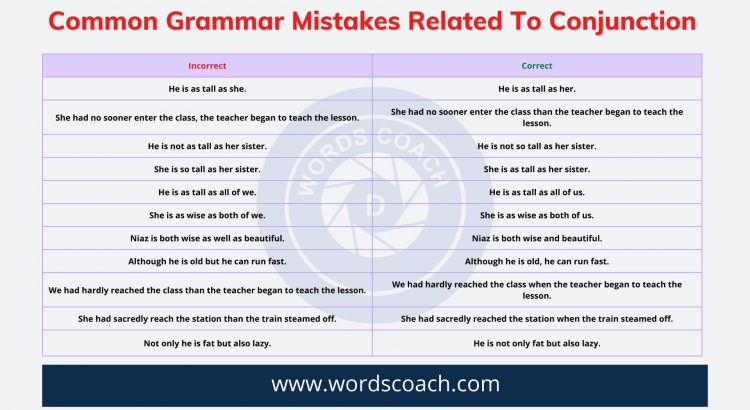
A conjunction is a word that is used to connect words, phrases, and clauses. There are many conjunctions in the English language, but some common ones include and, or, but, if, because, for, and when.
Most Common Grammar Mistakes Related To Conjunction
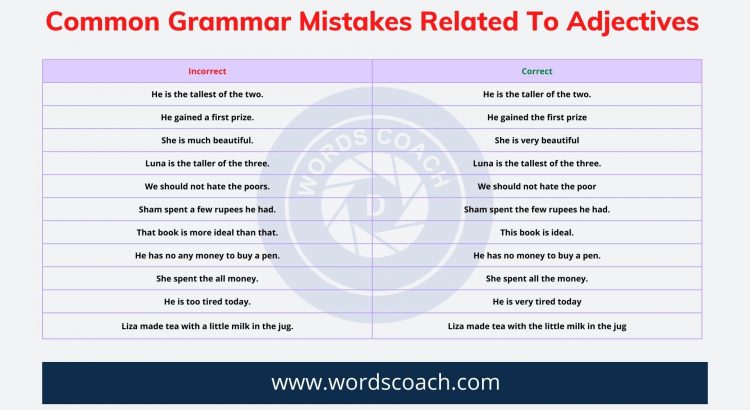
An adjective is a describing word. It gives more information about something. An adjective generally describes a Noun. A noun is a person, a place, or a thing. An adjective is one of the nine parts of speech.
Common Grammar Mistakes Related To Adjectives
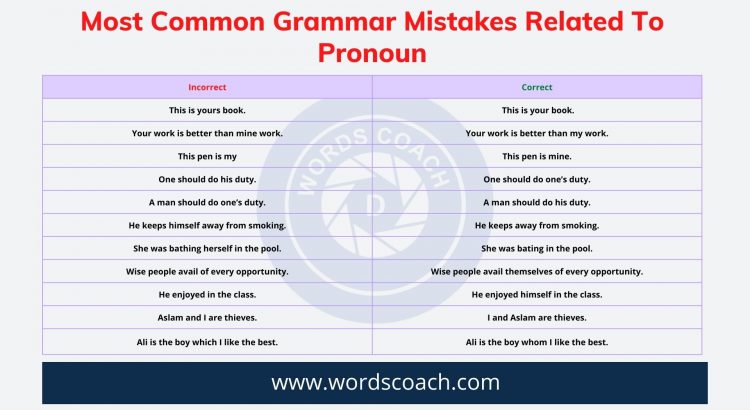
A pronoun is a word that is used instead of a noun or noun phrase. Pronouns refer to either a noun that has already been mentioned or to a noun that does not need to be named specifically.
Common Grammar Mistakes Related To Pronoun
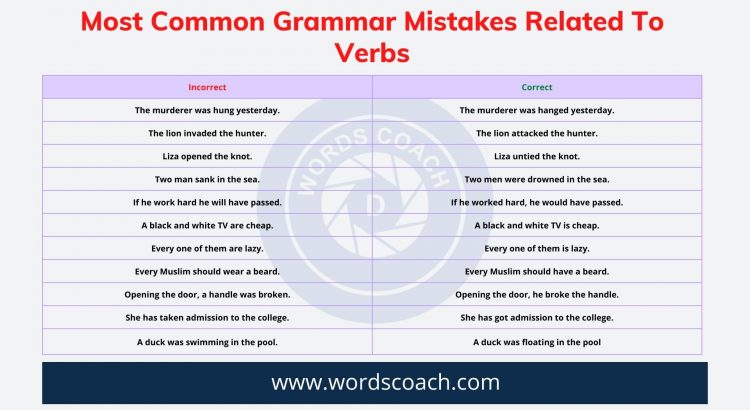
The verb suggest should be used with a gerund or a that-clause. It cannot be used with a to-infinitive. The verbs discuss, describe, order and request are transitive verbs. They should be followed by direct objects, and not prepositions.
Most Common Grammar Mistakes Related To Verbs
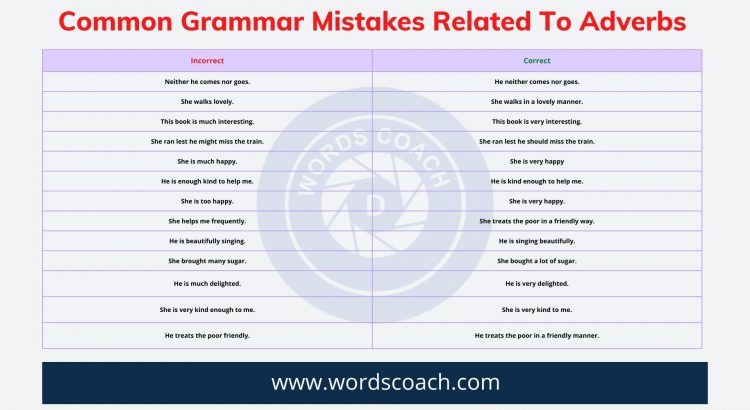
One common mistake with adjectives and adverbs is using one in the place of the other.
Most Common Grammar Mistakes Related To Adverbs
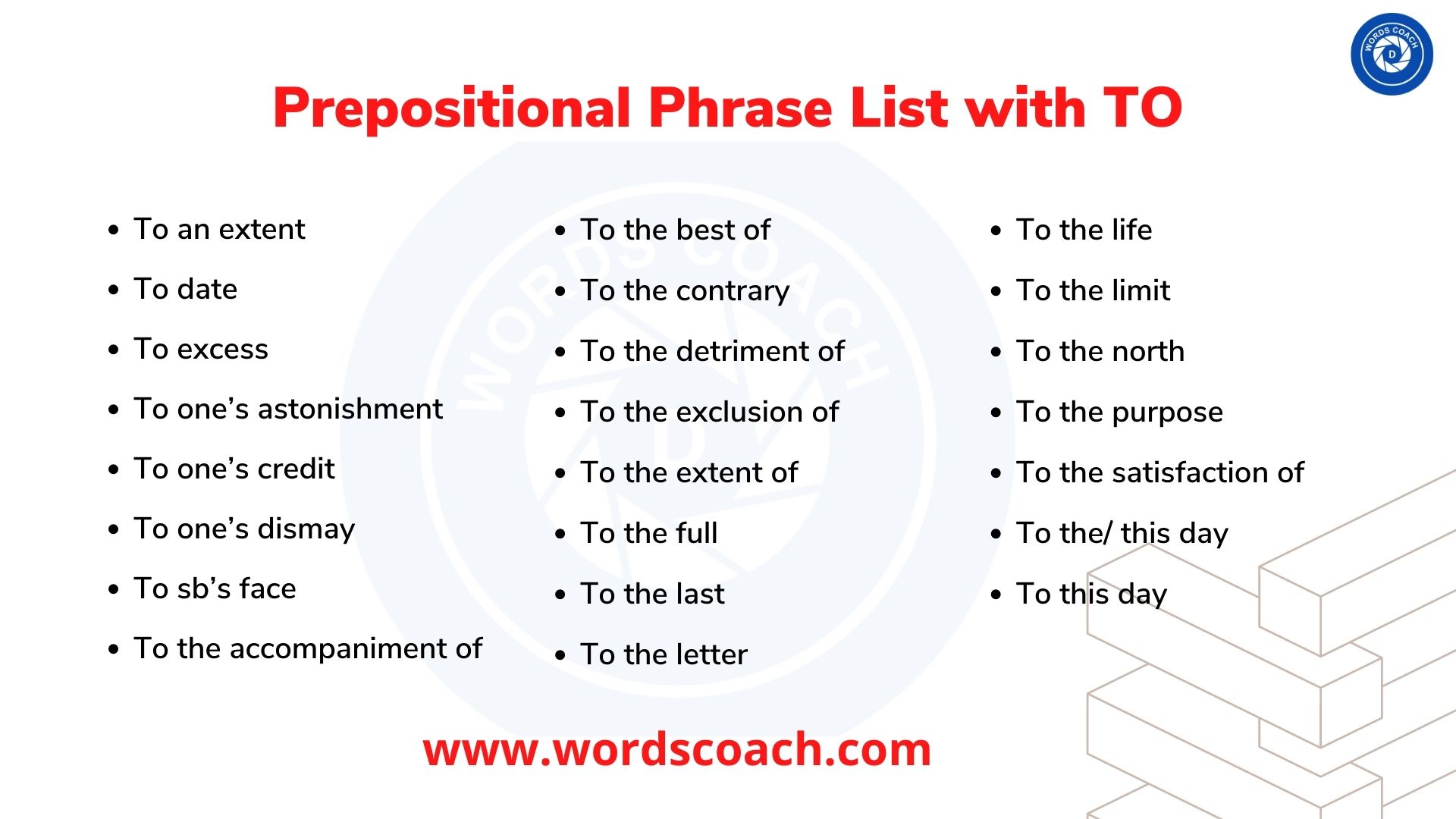
A preposition is a word that tells you how words are related in a sentence. It could often follow a verb, but it does not always. The example of the frog and a log can tell you a lot of them, but those are only one of two categories of prepositions.
Prepositional Phrase List with TO
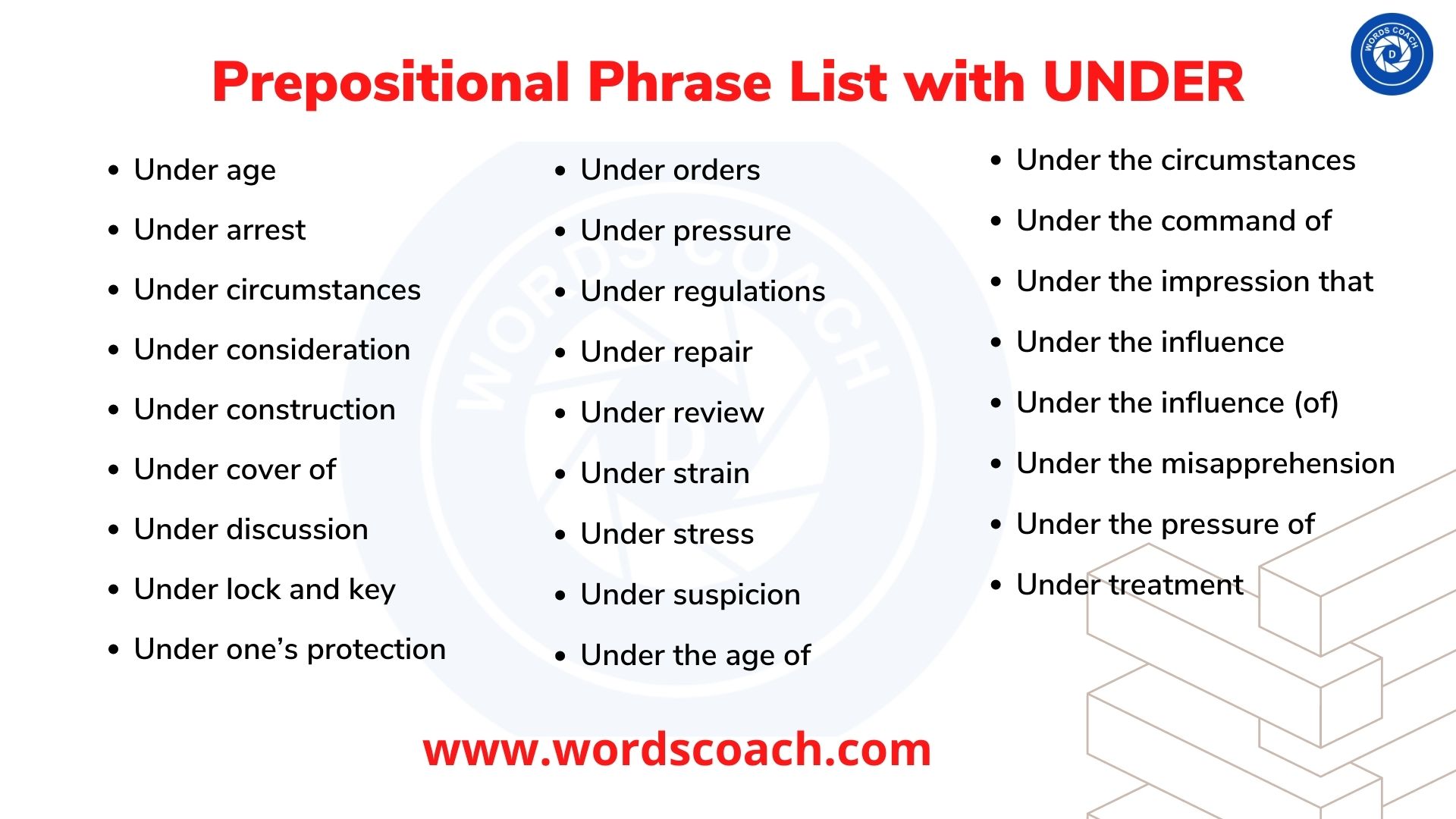
Preposition Definition A preposition is a word that tells you how words are related in a sentence. It could often follow a verb, but it does not always. The example of the frog and a log can tell you a lot of them, but those are only one of two categories of prepositions. In fact, […]
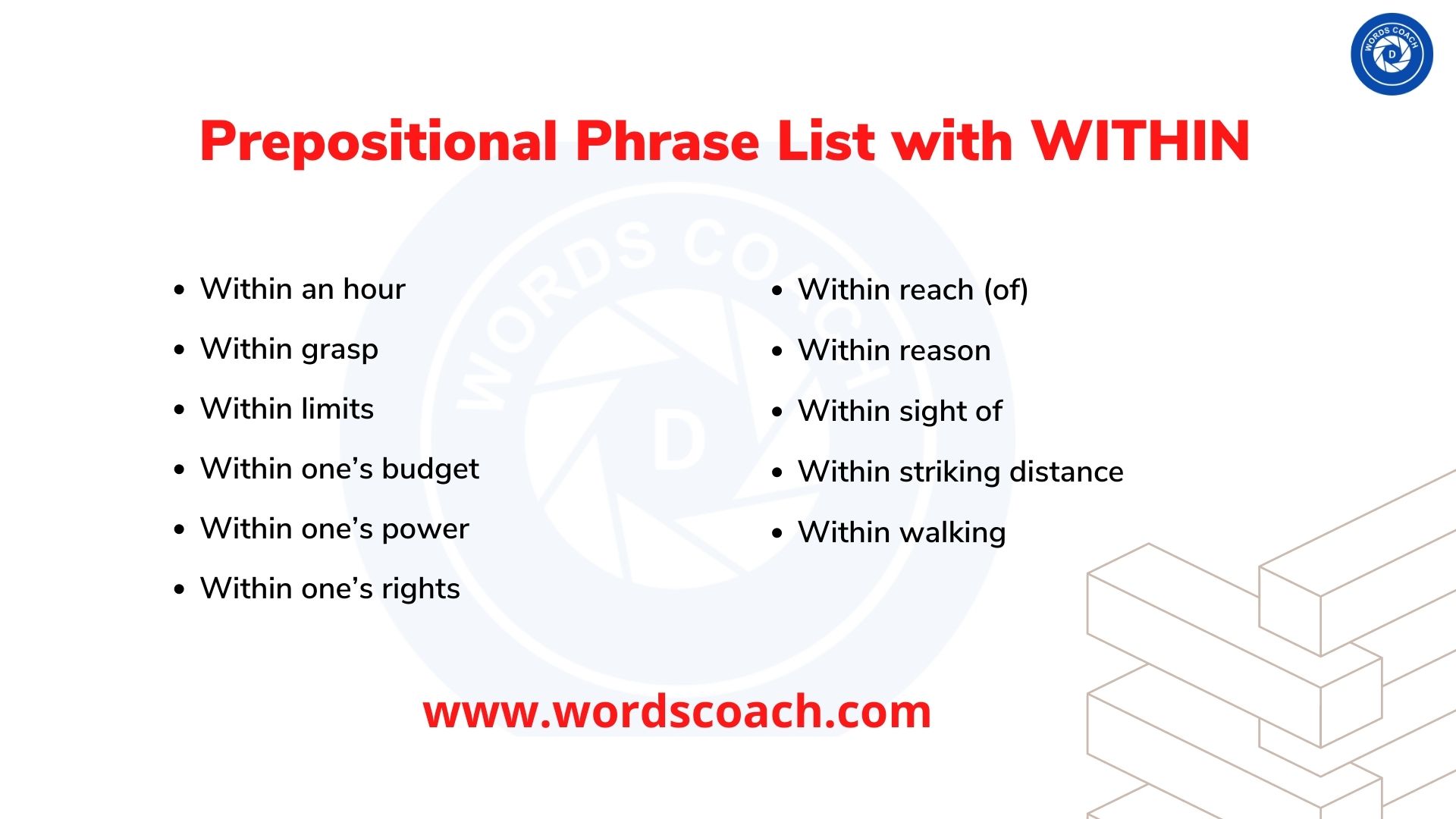
Prepositional Phrases with WITHIN, Prepositional Phrase List with WITHIN, Prepositional Phrase Examples with WITHIN
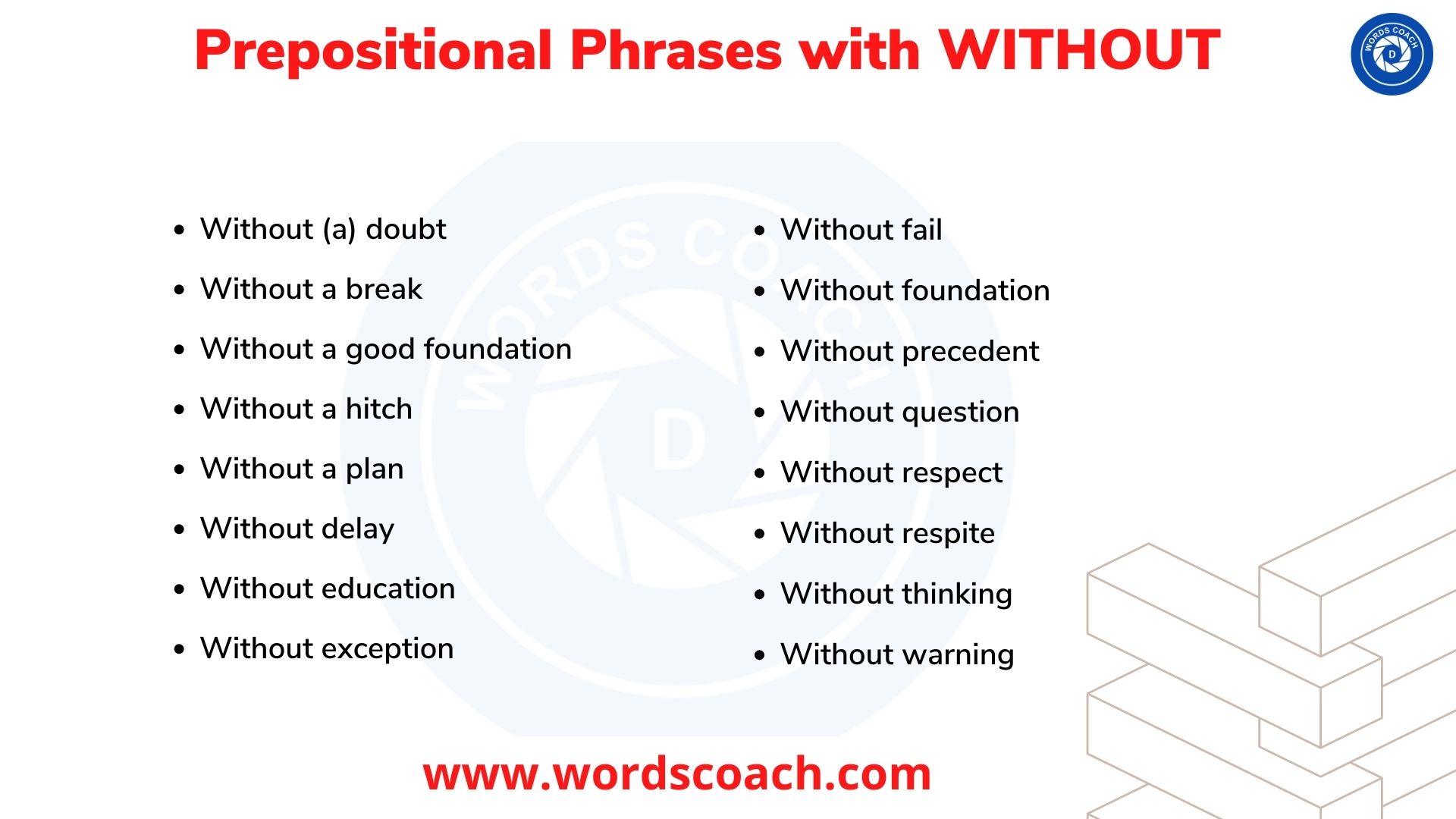
A preposition is a word that tells you how words are related in a sentence. It could often follow a verb, but it does not always. The example of the frog and a log can tell you a lot of them, but those are only one of two categories of prepositions.
Prepositional Phrases with WITHOUT
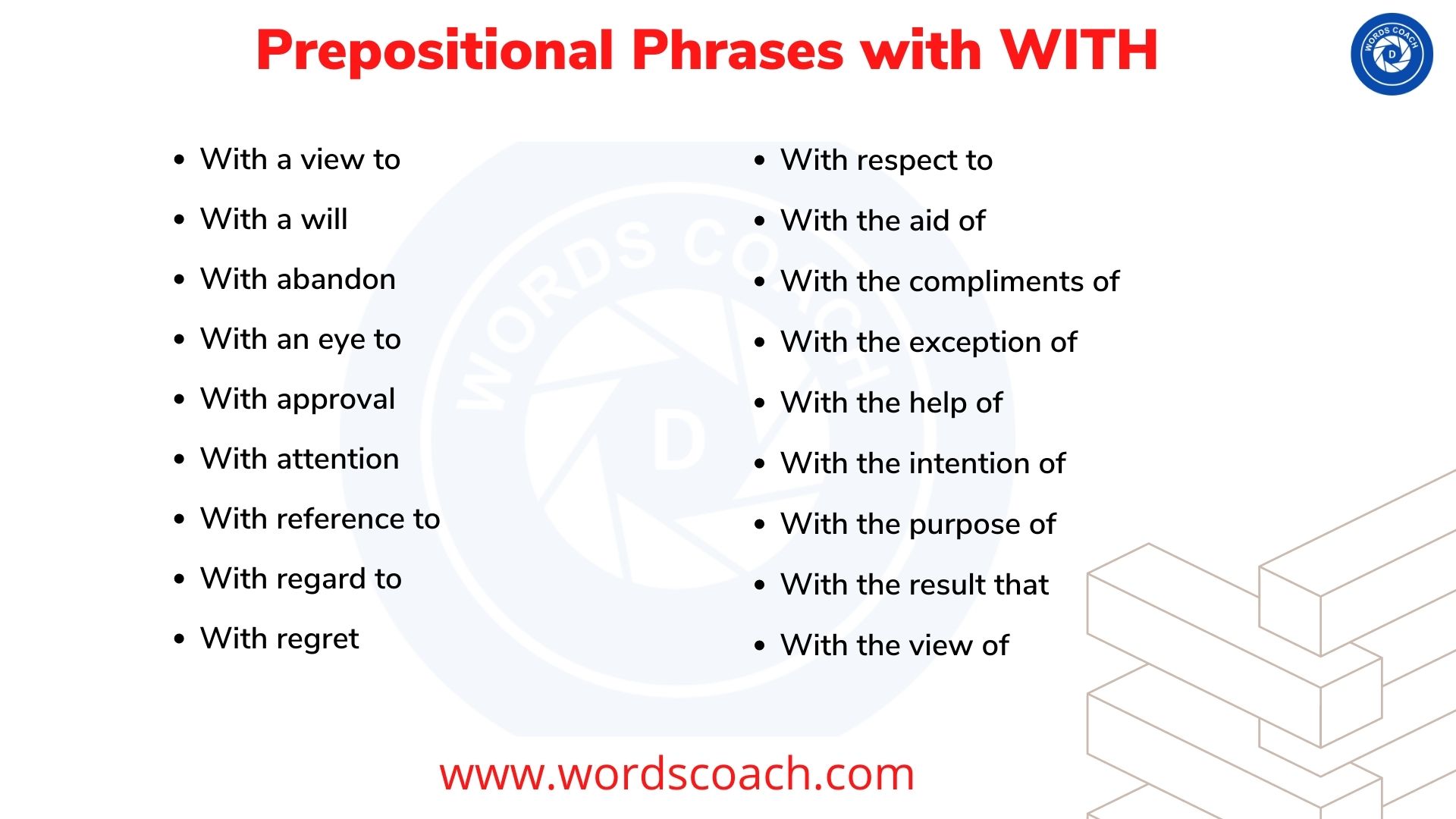
A preposition is a word that tells you how words are related in a sentence. It could often follow a verb, but it does not always. The example of the frog and a log can tell you a lot of them, but those are only one of two categories of prepositions.
Prepositional Phrases with WITH
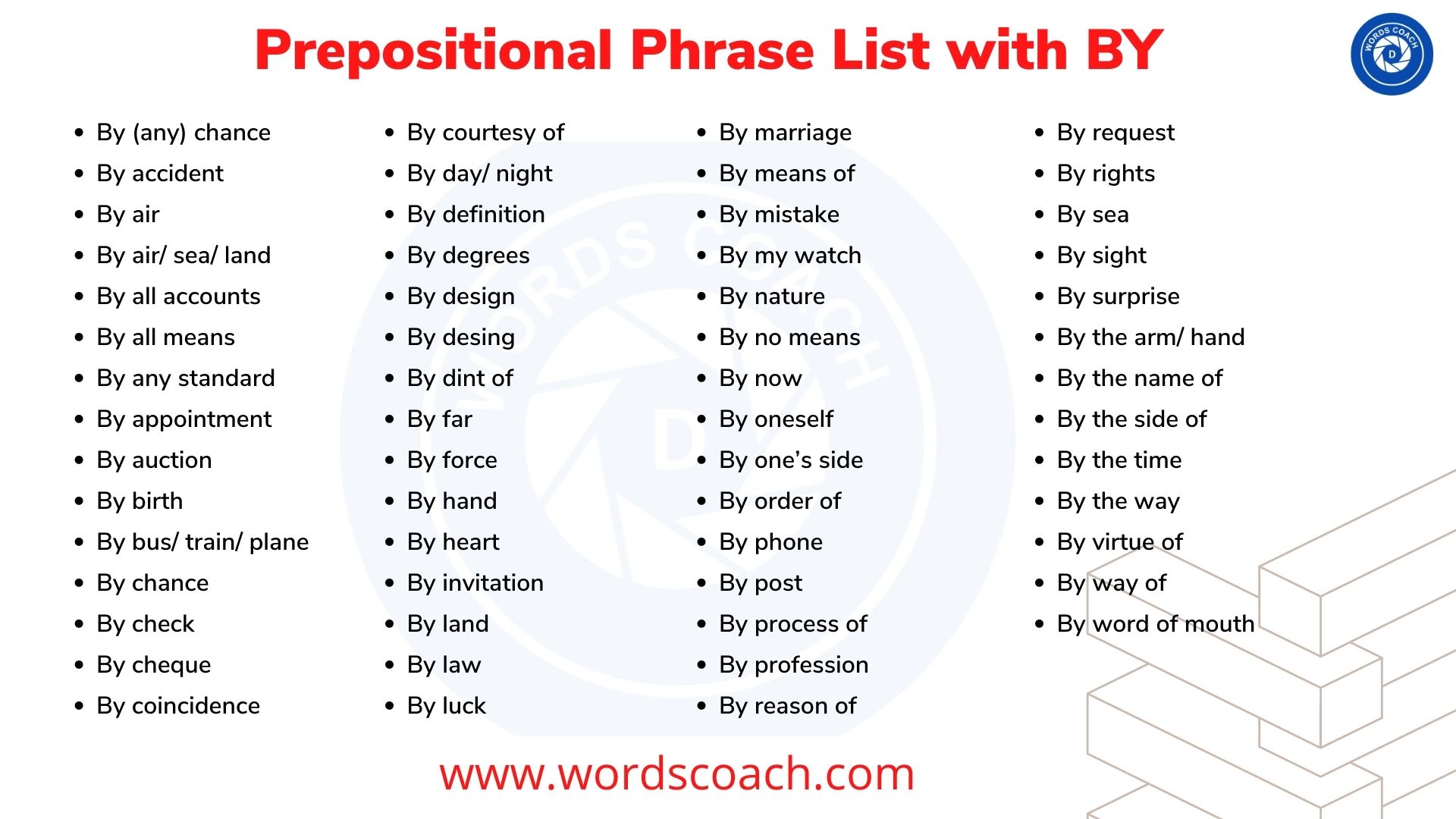
A preposition is a word that tells you how words are related in a sentence. It could often follow a verb, but it does not always. The example of the frog and a log can tell you a lot of them, but those are only one of two categories of prepositions.
Prepositional Phrase List with BY
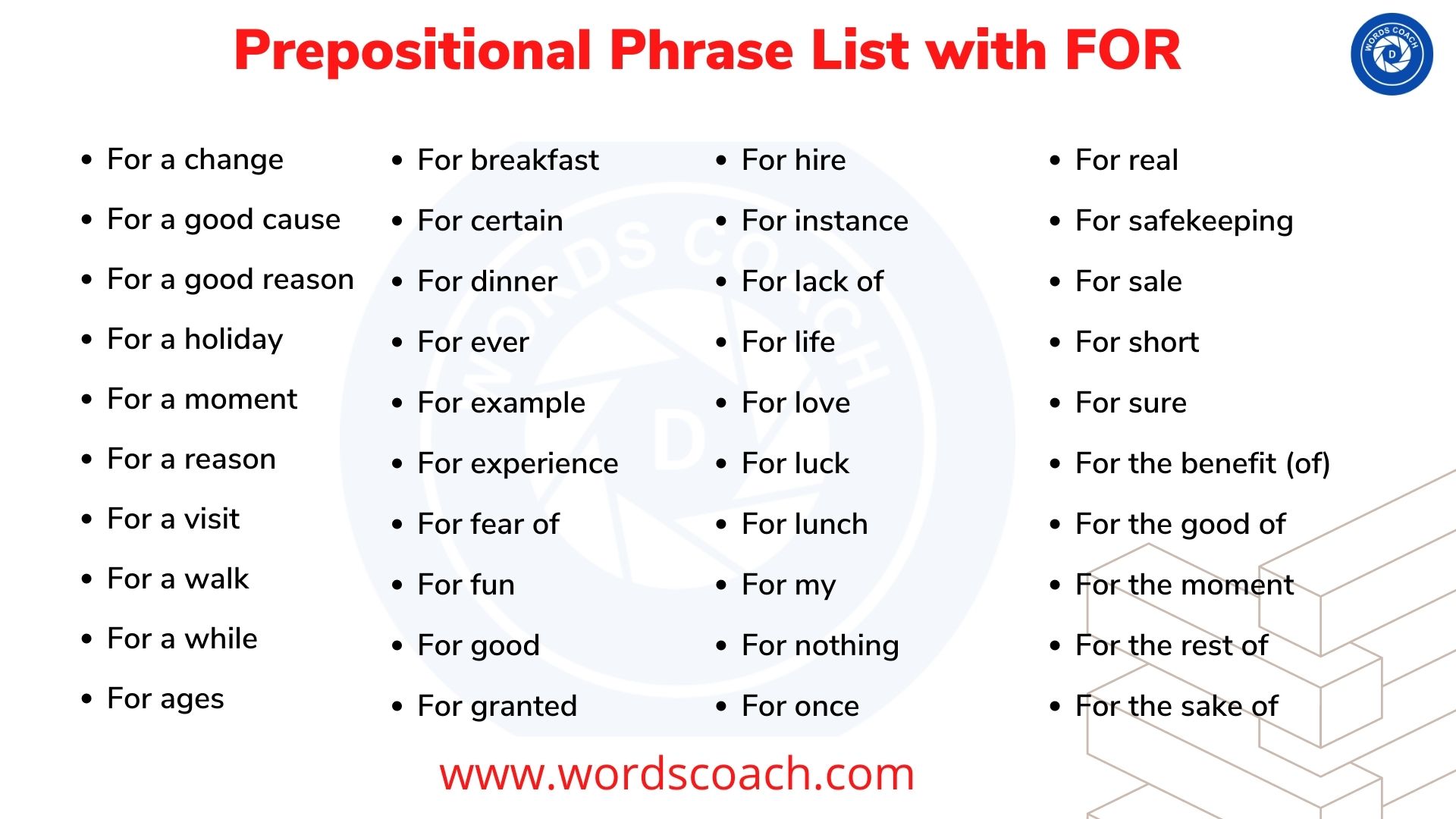
A prepositional phrase is a group of words consisting of a preposition, its object, and any words that modify the object. Most of the time, a prepositional phrase modifies a verb or a noun. These two kinds of prepositional phrases are called adverbial phrases and adjectival phrases, respectively.
Prepositional Phrase List with FOR
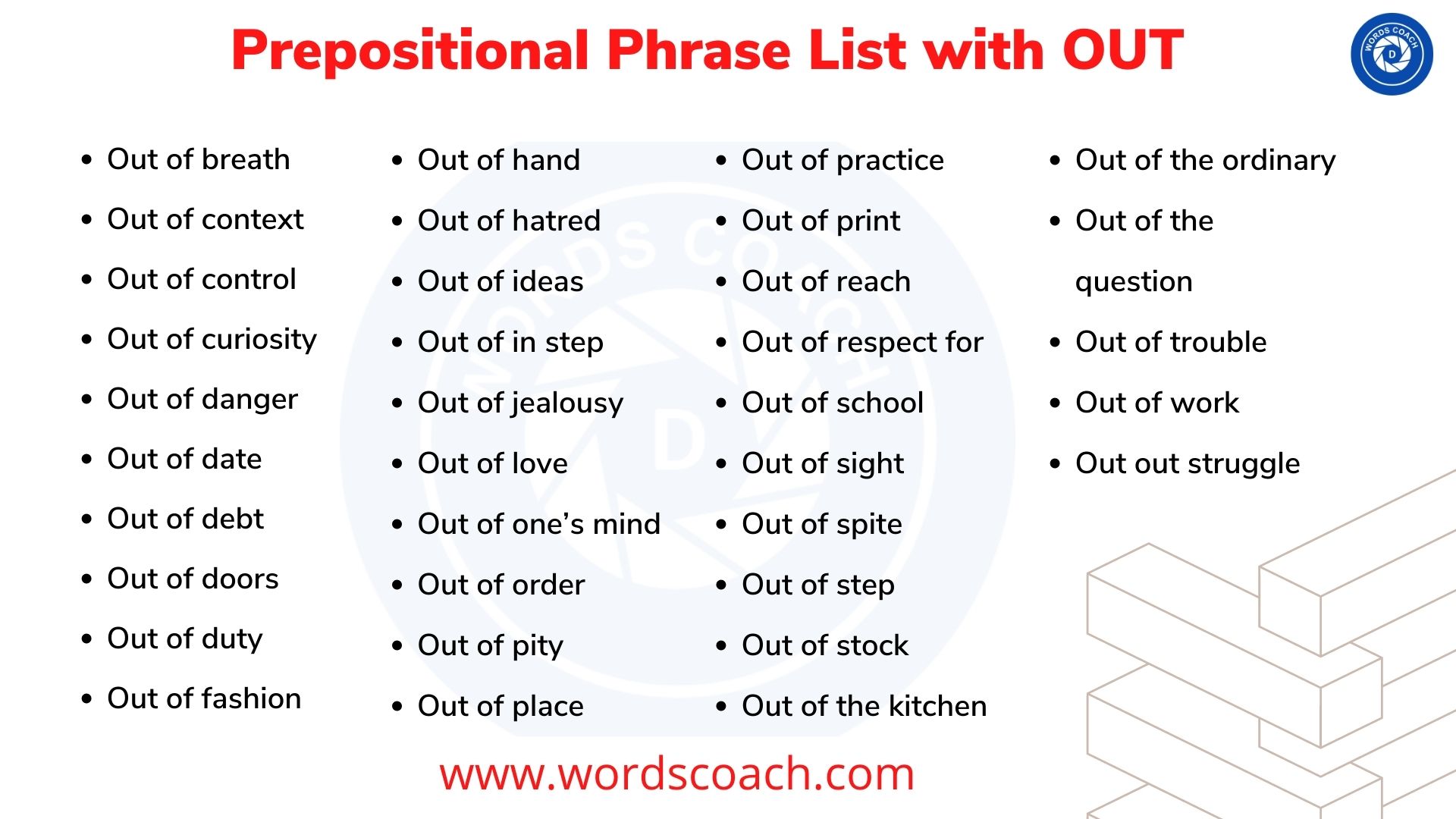
Prepositional Phrases with OUT!! Here is a list of some common prepositional phrases with “out” in English.
List of Prepositional Phrases with OUT.
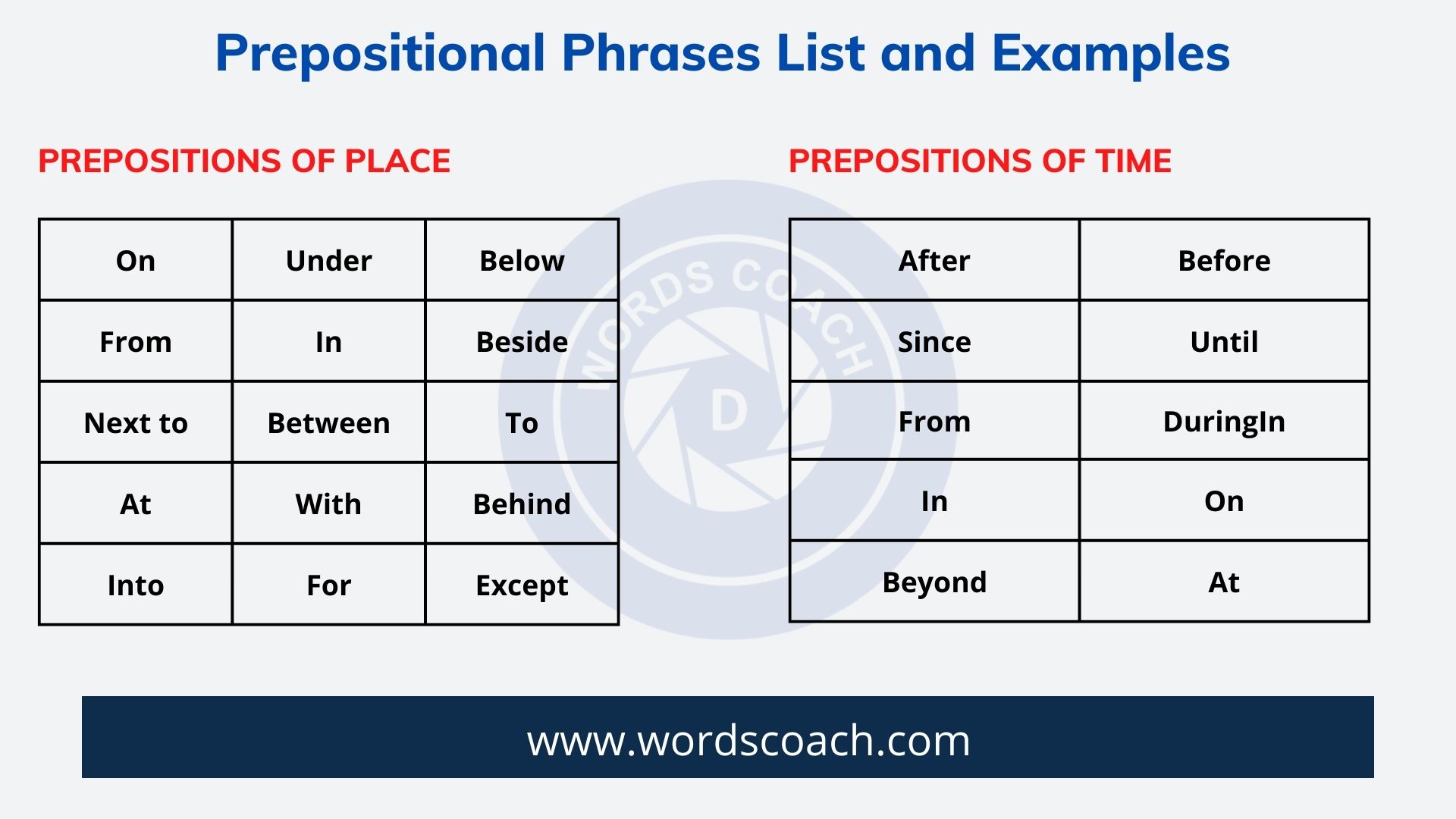
A preposition is a word that tells you how words are related in a sentence. It could often follow a verb, but it does not always. The example of the frog and a log can tell you a lot of them, but those are only one of two categories of prepositions.
List of Common Prepositions
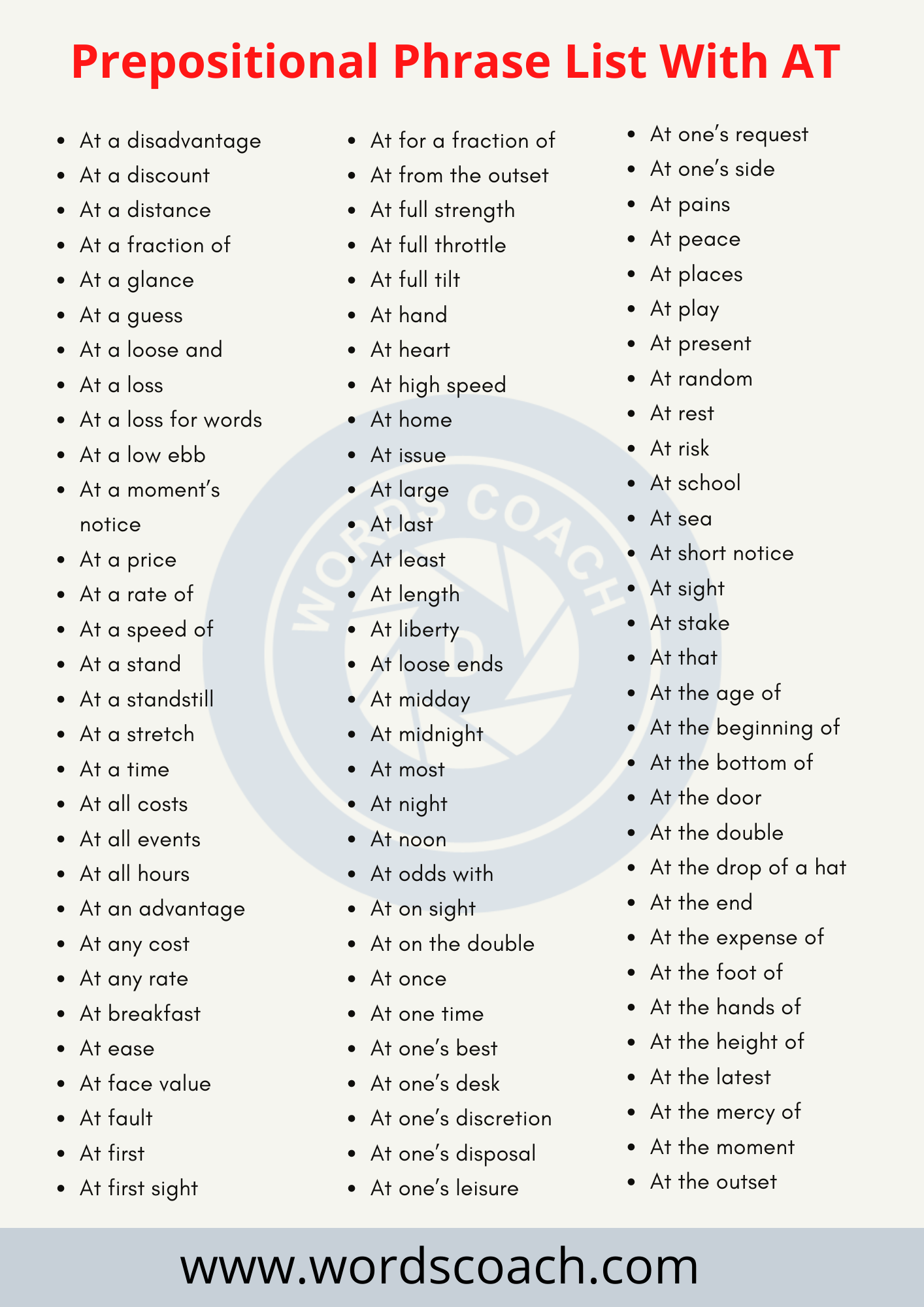
A preposition is a word that tells you how words are related in a sentence. It could often follow a verb, but it does not always. The example of the frog and a log can tell you a lot of them, but those are only one of two categories of prepositions.
Prepositional Phrase List With AT
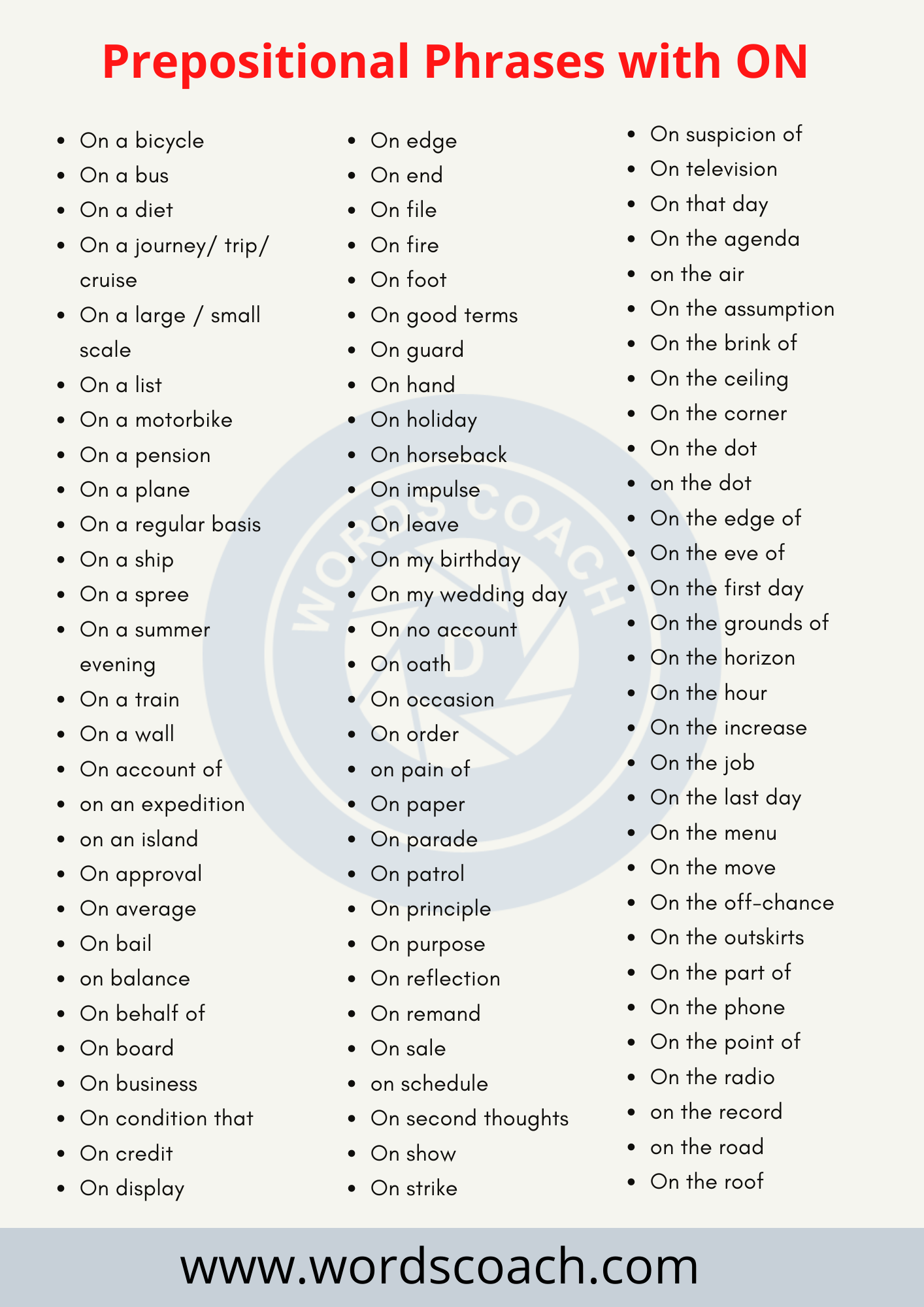
A preposition is a word that tells you how words are related in a sentence. It could often follow a verb, but it does not always. The example of the frog and a log can tell you a lot of them, but those are only one of two categories of prepositions.
Prepositional Phrases with ON